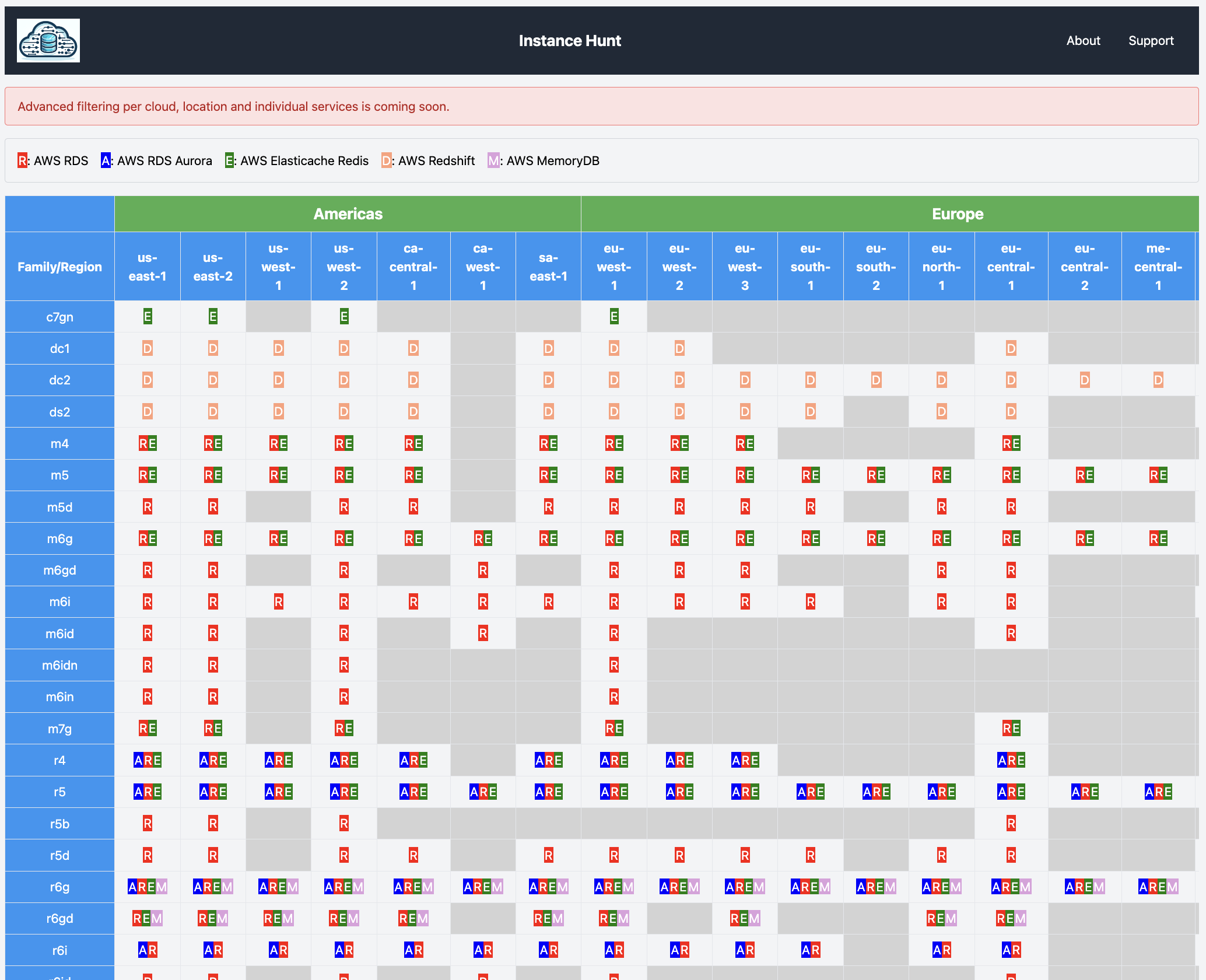InstanceHunt identifies the instance (families/types/classes) available for a cloud service across all the regions of that cloud.
The initial version is a working example of several AWS database services. Future releases will enable advanced filtering and will cover other service categories (e.g. compute) as well as GCP and Azure cloud platforms, as well as providing the full list of instance types within families within the service matrix.
For a few days investment this MVP is a usable service, complete with adding new regions the same day, for example ca-central-1 data was available the day of release. It is interesting and can answer questions like what regions the new generation 7 instance families are available? What consistent instance types can use use across Europe regions? Where is MemoryDB not available?
Feature requests are welcome. From today’s reading, being able to show a feature of a service may be also a useful future matrix, e.g. AWS Aurora Serverless Data API now available in Serverless v2, but only one of two engines and only in a few regions.
China regions and AWS Gov Cloud regions are coming soon.



